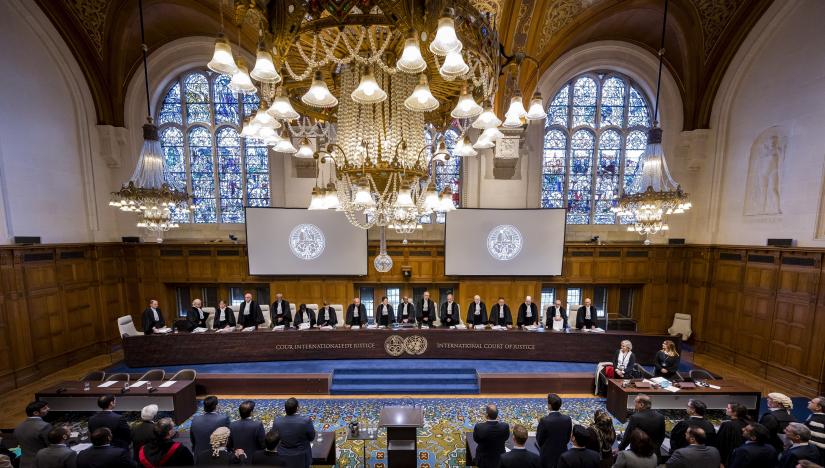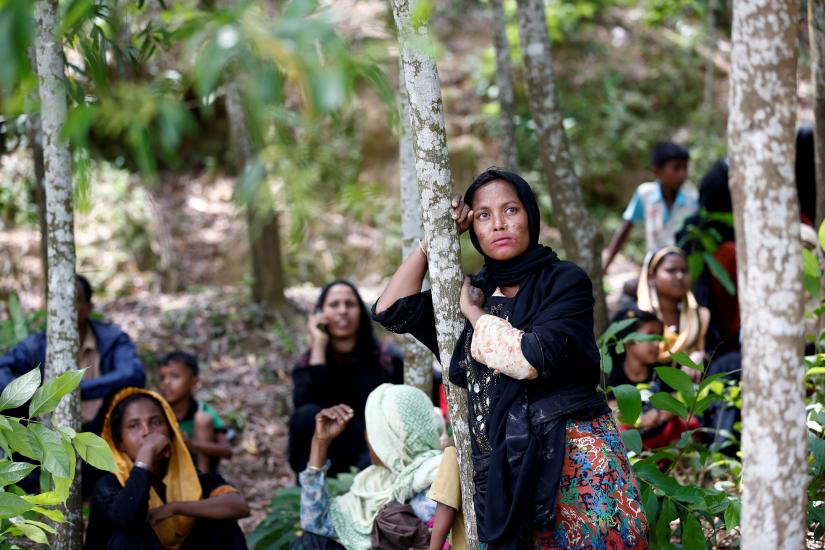
The long trial proceedings against Myanmar on charges of mass genocide in the International Criminal Court will be a challenge in achieving justice for the persecuted Rohingyas, say people familiar with the matter.
A foreign ministry official wishing to remain anonymous said that since the trials at ICC go on for a years, it takes a long time to get the results.
“Myanmar is a member of the International Court of Justice (ICJ) which is a part of the United Nations,” he told Bangla Tribune.
The International Court of Justice (ICJ) is scheduled to hold the first hearing against Myanmar on Dec 10 after Gambia, a tiny, mainly Muslim West African state backed by the 57-nation Organisation for Islamic Cooperation (OIC), lodged a lawsuit at the ICJ last month for genocide, including mass murder and rape.
Myanmar has categorically denied the allegations and its de facto leader Aung San Suu Kyi is scheduled to attend the first hearing to "defend the national interest.”
The foreign ministry official said that it is possible to get justice through the UN Genocide Convention 1948 but the problem with ICJ is that it’s nearly impossible to prove that the political leadership intended genocide.
“For example the International Court of Justice ruled that genocide didn’t take place in Bosnia and Serbia because it couldn’t be proved that the then leaders didn’t intend genocide,” the official said.
He said that although the countries are bound to follow the ICJ order, it doesn’t say what the consequences of a violation are.
On the other hand, Myanmar is not a member of the ICC which might make it difficult for an order to be implemented, he said.
According to the foreign ministry official both Bangladesh and Myanmar are signatories of the genocide convention which means that Myanmar is bound to take steps against those who carry out such crimes. “But Myanmar didn’t do it.”
He said an initial order might be given so that the evidence of genocide is not lost and another order on imposing sanctions against investments in the controversial area in Myanmar might also come. Another government official also wishing to remain unnamed reiterated that ICC tries criminal cases and hence the procedure is a long one.
Another government official also wishing to remain unnamed reiterated that ICC tries criminal cases and hence the procedure is a long one.
“Since the Myanmar government does not recognize this court, the trial will be held in absence of the accused. Hence sometimes the case loses importance,” he said.
The official said that since there is provision to challenge the verdict, it takes an even longer time for it to be executed.
It generally takes around five to ten years for these cases to go into trial. However, due to Bangladesh’s diplomatic alertness trial started two years after the persecution against the Rohingyas started in 2017.
Bangladesh is currently sheltering over 1.1 million Rohingyas in the refugee camps in Cox’s Bazar since the ethnic minority escaped Myanmar’s Rakhine following a military crackdown.
Although, Rohingyas started crossing over to Bangladesh since 1978, the biggest influx or over 1.1 million came in 2017.


